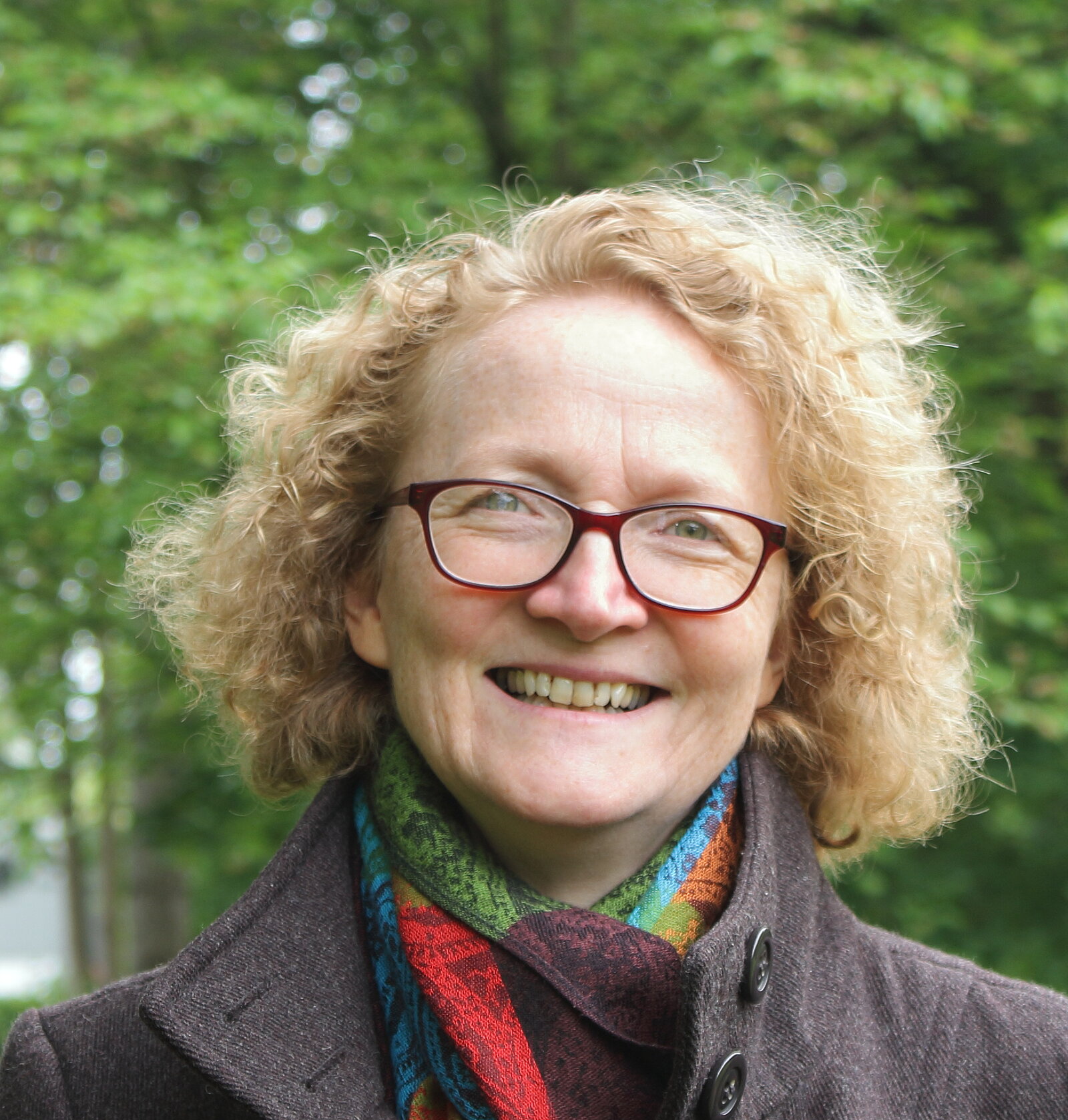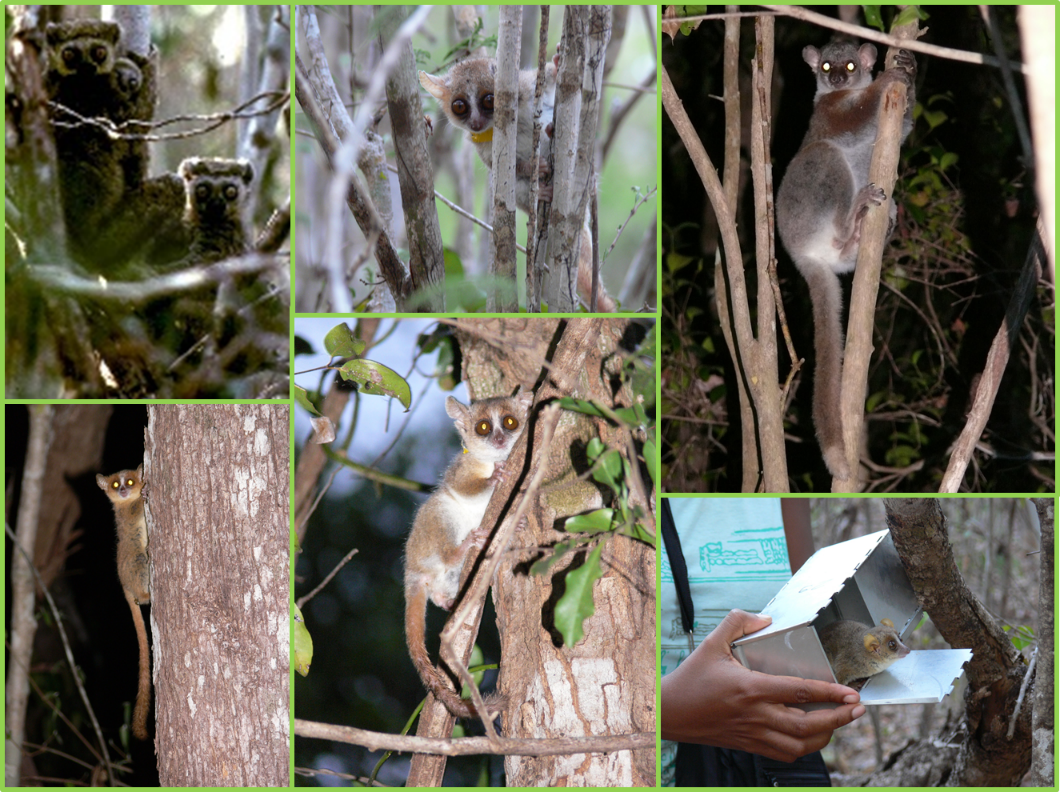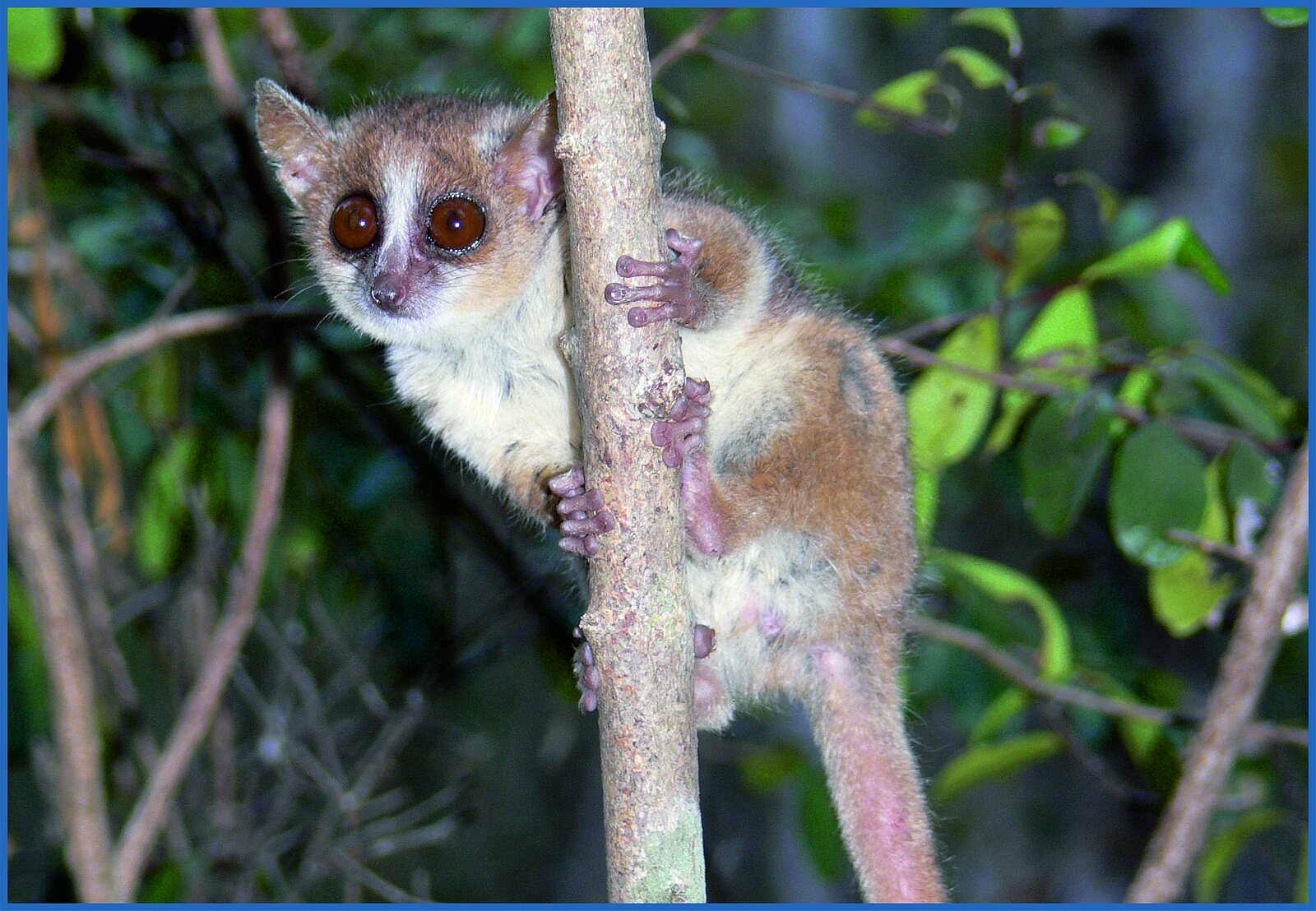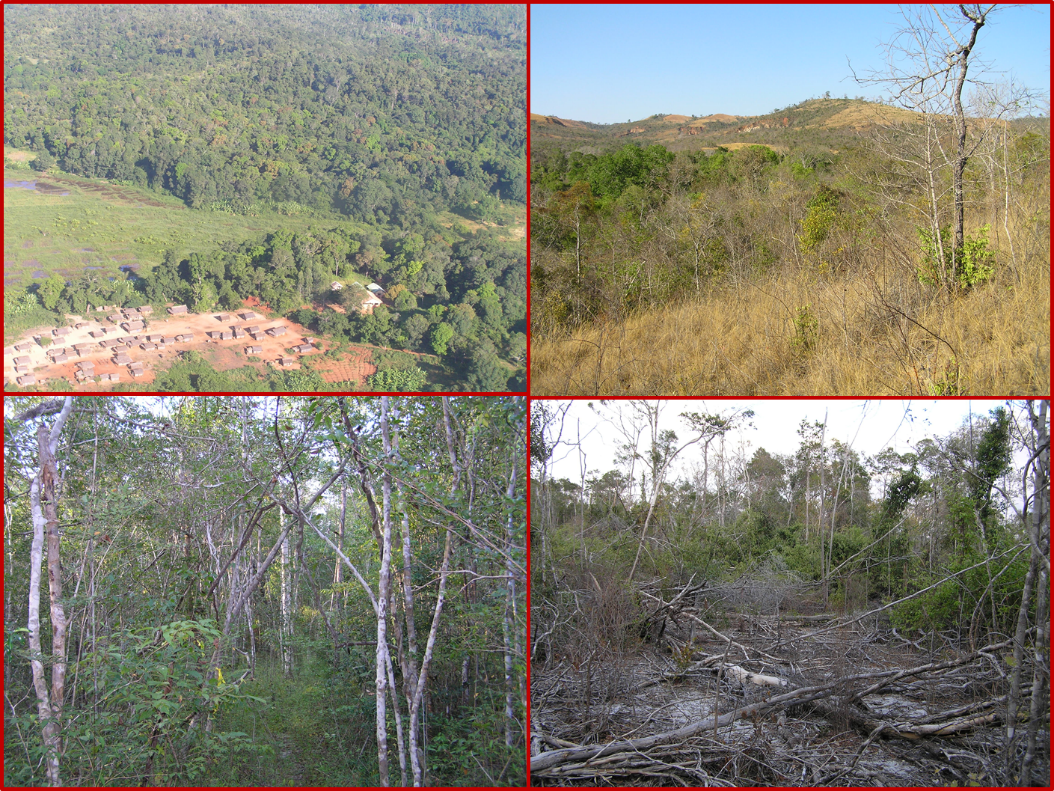
What are the behavioral and ecological adaptations of animals to their natural environments? This is a central zoological research question for a long time. It is clear that all living species are well adapted, since they would already be long extinct otherwise. Adaptation, however, can lead to increasing specialization or to the evolution of a high flexibility in behavior and ecology. The degree of this variability can differ largely between individuals, between populations or between species. We investigate the degree and importance of plasticity in behavior and ecology also in view of the increasing changes in natural environments. Important study species are the nocturnal lemurs and small mammals of Madagascar. Madagascar is one of the hottest hotspots for biodiversity on earth. The island harbors an extraordinary number of animal and plant species that cannot be found anywhere else. The study of the evolutionary history and biogeography of nocturnal lemurs on Madagascar forms another central research question. However, this high species diversity is increasingly threatened by human disturbances, such as wood extraction, slash-and-burn cultivation or hunting. We therefore also employ ecological, parasitological, and molecular methods to study the consequences of forest loss and fragmentation for lemurs and small mammals. Finally, results are used to derive practical recommendations for the effective conservation of species and ecosystems.

Current research projects
Evolution of Biodiversity
Methods to employ
Ecology:
- Capture-mark-recapture methods
- Morphometric characterization of body dimensions
- Distance sampling techniques
- Characterization of vegetation structure and composition
- Parasitological investigations
- GIS-based analyses
Behavior:
- Radiotelemetry of small primates
- Direct behavioral observations with various techniques (e.g. focal animal sampling, scan sampling, 1/0 sampling)
- Videographic data collection of behavior from nocturnal animals
- Standardized behavioral experiments (e.g., operational conditioning, open field, spontaneous discrimination experiments)
- Behavioral analyses software (e.g., OBSERVER XT, Ethovision, Boris)
Molecular lab (S1):
- Work with different genetic marker systems (e.g., nuclear microsatellites, Sanger sequencing, NGS)
- Determination of relatedness and paternity
- Analyses of genetic variation of individuals and populations
- Analyses of gene flow and connectivity between populations
- Phylogeographic and phylogenetic analyses
- Demographic inference
The Team
Head: Apl.Prof. Dr. rer. nat. Ute Radespiel
PhD
Heike Lahusen
Misa M. Rasolozaka
Naina R. Rabemananjara
Lena Seitz
Dominik Schüßler (extern)
Malcolm Ramsay (extern)
Master students
Lisa Brommenschenkel
Nicole Lansmann Niehaus
Alumni
Tobias van Elst, PhD (Department of Environmental Systems Science, ETH Zürich)
Helena Teixeira, PhD das ( Institut des Sciences de l'Evolution de Montpellier (ISEM UMR 5554 UM CNRS IRD ), University of Montpellier, France)
Frederik Kiene, PhD (Clinic for Small Animals, University of Veterinary Medicine Hannover, Germany)
Sharon Kessler, PhD (Department of Psychology, University of Stirling, U.K.)
Dr. rer. nat. Philipp Hohenbrink (MDSS GmbH, Hannover, Germany)
Dr. Romule Rakotondravony (University of Mahajanga, Madagascar)
Dr. Bertrand Andriatsitohaina (Planet Madagascar & University of Mahajanga, Madagascar)
Gillian Olivieri, PhD (Ecole Polytechnique Fédérale de Lausanne, Switzerland)
Dr. Katerina Guschanski (School of Biological Sciences, University of Edinburgh, U.K.)
Caterina Marquès Gomila, MSc





